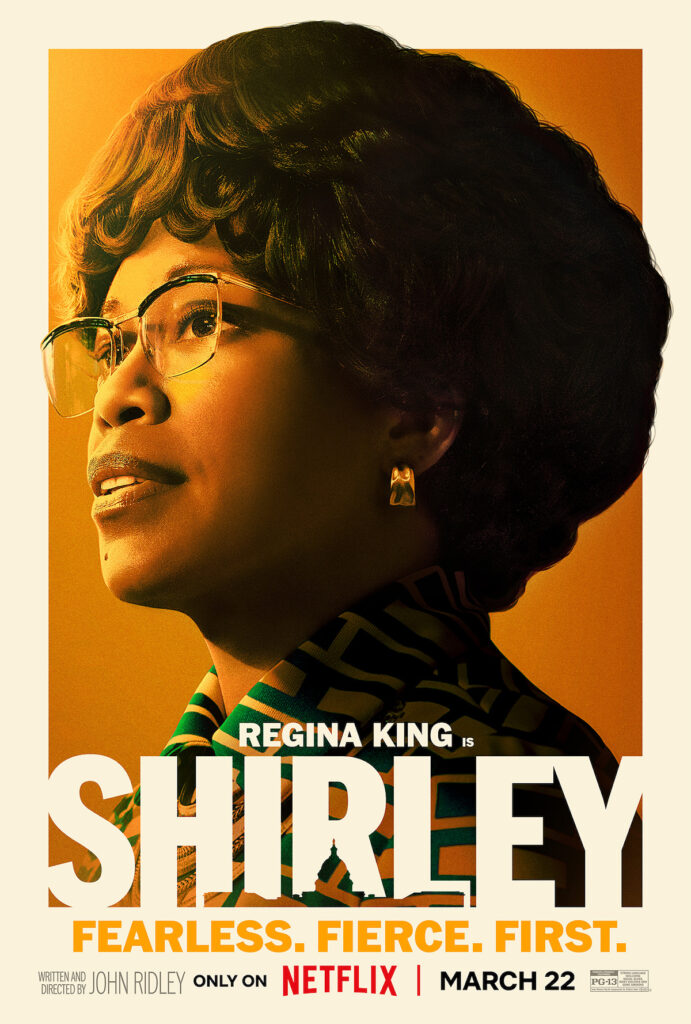
Photo Courtesy: Netflix
Shirley Chisholm, the nation’s first Black congresswoman, began a historic quest to become president of the United States in 1972. Regina King, an Academy Award, Golden Globe Award, and four Primetime Emmy Awards recipient, plays Chisholm in the new Netflix movie “Shirley,” and takes a deep dive into Chisholm’s career.
The movie explores many highlights of Chisholm’s career but mostly the year 1972, where Chisholm ran for the presidential nomination of the Democratic Party. The movie covered all grounds of how she strategically planned her run, but also the many obstacles she faced merely by being an African American woman.
“Shirley” tells very little detail about her life prior to her being elected to Congress. It briefly mentions her time as a schoolteacher and doing a lot of work for her community in Brooklyn, New York.
Her sister, Reina King, who is Regina King’s real-life sister as well as one of the producers of the film, strongly disapproved of Chisholm’s running for president or being involved in any sort of context, but she isn’t really shown too much in the film.
Chisholm’s marriage was briefly covered throughout the film but “Shirley” doesn’t get into specifics with her marriage, which I felt would’ve been great for women to be able to see how she balanced her marriage and career.
While a lot of personal information was left out, I still appreciated the smaller details about her, including how she would always take a break every day to eat lunch in her office alone. I would’ve liked more in-depth detail about how she made it to be elected to congress during the ‘70s.
Although I would’ve enjoyed some more detail on her early life, we did see a deep dive into how she strategically networked with people to join her campaign and could visibly see how she impacted the people around her to make change in their specific specialized areas.
A scene that I found enthralling was when she visited George Wallace in the hospital. Not only was he her opponent but Wallace was also a strong advocate for segregation. The producers were clearly trying to show that Chisholm had a good heart and that she was a “team player,” but the scene wasn’t needed and only caused Black voters to be upset and confused by her motives as an African American politician.
Although there were a few questionable moments, Chisholm showed tremendous bravery, perseverance, dedication and leadership. The film was overall inspirational.
The film was the epitome of the saying, “It takes a village.” Although it was Chisholm’s campaign, she had so much help from so many different people who weren’t even getting paid, but just believed in her and believed in the work she could achieve and dedicated a countless number of times and hours ensuring her success.
Although the movie was set in the ’70s, it caused me to critically think about today. Although African American leadership has grown in politics in the United States, we still have such a long way to go. I still strongly felt a lot of the issues she addressed in her campaign are still relevant to today’s political issues.
The main message conveyed in “Shirley” is to never give up regardless of the obstacle you may face in your life, to stand strong in what you believe in even if it may ruffle some feathers.